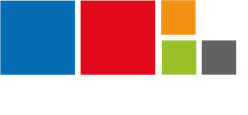In today's world, it is clear that the traditional idea of the office as the only place to work no longer holds true. The rise of technology, changing work cultures and the need for flexibility have caused employees and employers to look for new ways of working. This has led to a shift where the office is no longer the only, or even the most attractive, option for many professionals.
To stay relevant and compete with alternative working arrangements, traditional offices must rethink their approach. Here are some strategies offices can adopt to increase their appeal and adapt to these changing work trends:
Flexible Work Policy:
One of the first steps offices can take is to implement flexible work policies. This allows employees to work remotely, whether from home or other convenient locations. A hybrid work model, where employees can split their time between in-office and remote work, may also be attractive to many professionals.
Technology Integration:
It is essential for offices to invest in advanced technology that enables remote collaboration, virtual meetings and seamless communication. A robust IT infrastructure that supports remote working without compromising security and efficiency is vital in the modern work environment.
Well Designed Office Spaces:
Although much work takes place remotely, the office space remains an important part of the work experience. Offices can increase their appeal by creating inviting and collaborative spaces that promote creativity and teamwork. Modern, flexible layouts that suit different working styles can help with this.
Focus on Employee Well-being:
Employee wellbeing must be a priority for offices that want to remain competitive. By offering wellness programs and initiatives to support health and work-life balance, offices can create a positive work environment where employees thrive.
Opportunities for Professional Development:
Offering professional development and training opportunities is another way firms can differentiate themselves. By fostering a culture of continuous learning, offices can attract and retain top talent.
Community Building:
Creating a sense of community within the office environment is vital. Team building events, networking opportunities and social activities can strengthen relationships between employees and promote a positive work culture.
Adapting to Trends in Remote Work:
Instead of fighting the rise of remote work, offices should embrace this trend and adjust their policies accordingly. Providing resources and support for remote workers is crucial to ensuring they feel connected to the organizational culture.
Custom Work Solutions:
Finally, offices must offer flexible office solutions tailored to the needs of different companies and industries. Co-working spaces or on-demand meeting rooms can be an attractive option for companies that may not need permanent office space.
By embracing flexibility, leveraging technology and prioritizing employee wellbeing, traditional offices can remain competitive and adapt to the changing landscape of work preferences. It is essential to create an environment that meets the diverse needs of today's workforce, while retaining the benefits of a physical office space.

